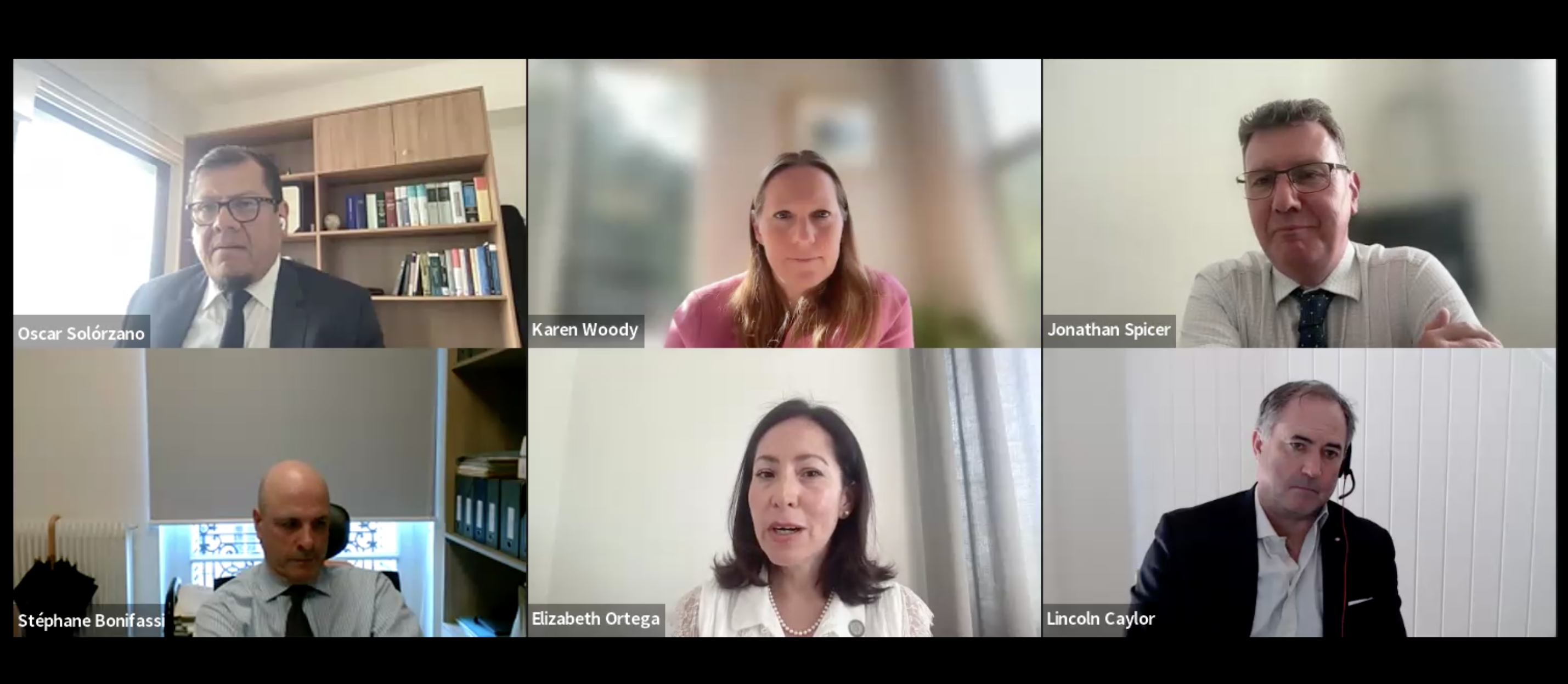Probing the issue of victims in negotiated settlements for white-collar crimes

At a joint webinar with the International Academy of Financial Crime Litigators, leading legal experts from around the world explored the debates around the role of victims in negotiated settlements for economic crimes.
The discussion followed the publication of a working paper by Academy Fellows that looks at procedures for compensating victims in the context of non-conviction criminal case resolutions in six countries: the United States, the United Kingdom, Canada, France, Germany and Switzerland.
In brief, plea deals, deferred prosecution agreements and other conviction-avoidance mechanisms can result in huge fines being paid to wealthy countries while victims look on – a jarring spectacle. Many ask: What's wrong with the system? What needs to be fixed?
Moderated by Jonathan Spicer, the discussion featured Stéphane Bonifassi (France), Prof. Wolfgang Spoerr (Germany), Prof. Karen Woody (USA) and Oscar Solórzano (Switzerland and Latin America). Lincoln Caylor and Elizabeth Ortega made opening and closing remarks.
Though such complex discussions are difficult to summarise, a few points arose that can help to shape debates going forward:
1 Who are the victims?
Identifying the victim in cases involving negotiated settlements, particularly where corruption or bribery is involved, is not as simple as we may think. There may be a wide range of potential victims, from individuals or companies to sovereign states.
Sometimes criminal activity may be more defined by the harm that it causes to collective public interests like the environment than to people or corporate entities.
2 What is their role and standing in criminal proceedings?
The role of victims within the criminal process varies between jurisdictions, but there is also a distinct difference of approach between legal traditions.
In common law jurisdictions, the victim has no standing within the criminal procedure and relies on the prosecutor to seek redress on their behalf.
In contrast, civil law jurisdictions do allow victims to be parties within criminal proceedings, at least in the trial phase. However, in the pre-trial phase, this typically involves more discretion of the prosecutors.
Victims may not be invited to participate in these situations because they have not been properly identified. It may also be because the involvement of victims in already complex negotiations may stand in the way of obtaining an effective settlement.
3 What would improve the situation?
The present position where victims do not have a seat at the table in negotiated settlement discussions is generating controversy and prosecutors and courts should take greater efforts to bring victims into the process.
However, it is also important to recognise that victims retain the rights to bring claims in civil courts where their ability to seek redress may in certain circumstances be better served than in criminal proceedings and negotiated settlements.
More support for victims in participating in criminal proceedings and/or in identifying civil means for seeking redress in economic crime cases would be valuable. This is especially important in cases involving sovereign states, which may face hurdles in terms of legal and investigative skills, resources and the ability to cooperate internationally.
Learn more
- Read the paper: The Role of Victims in Negotiated Settlements, by Stéphane Bonifassi, Lincoln Caylor, Grégoire Mangeat, Léon H. Moubayed, Jonathan S. Sack, Andrew Stafford KC, Wolfgang Spoerr and Thomas Weibel.
- See short highlights in this playlist of clips.
- Watch the full webinar recording on YouTube.
- Learn more about the International Academy of Financial Crime Litigators, for which the Basel Institute acts as Secretariat.



